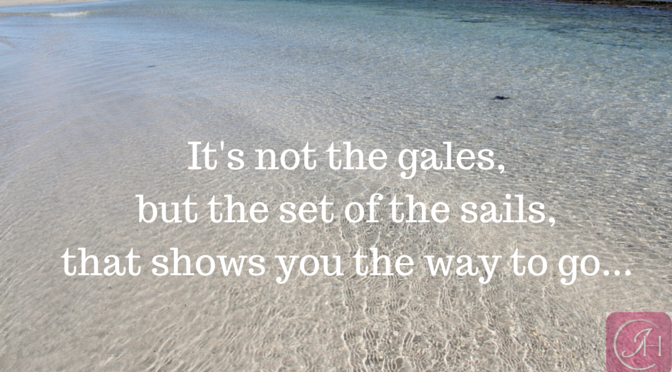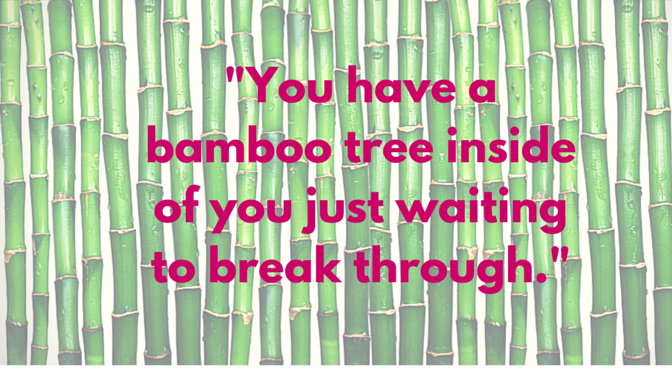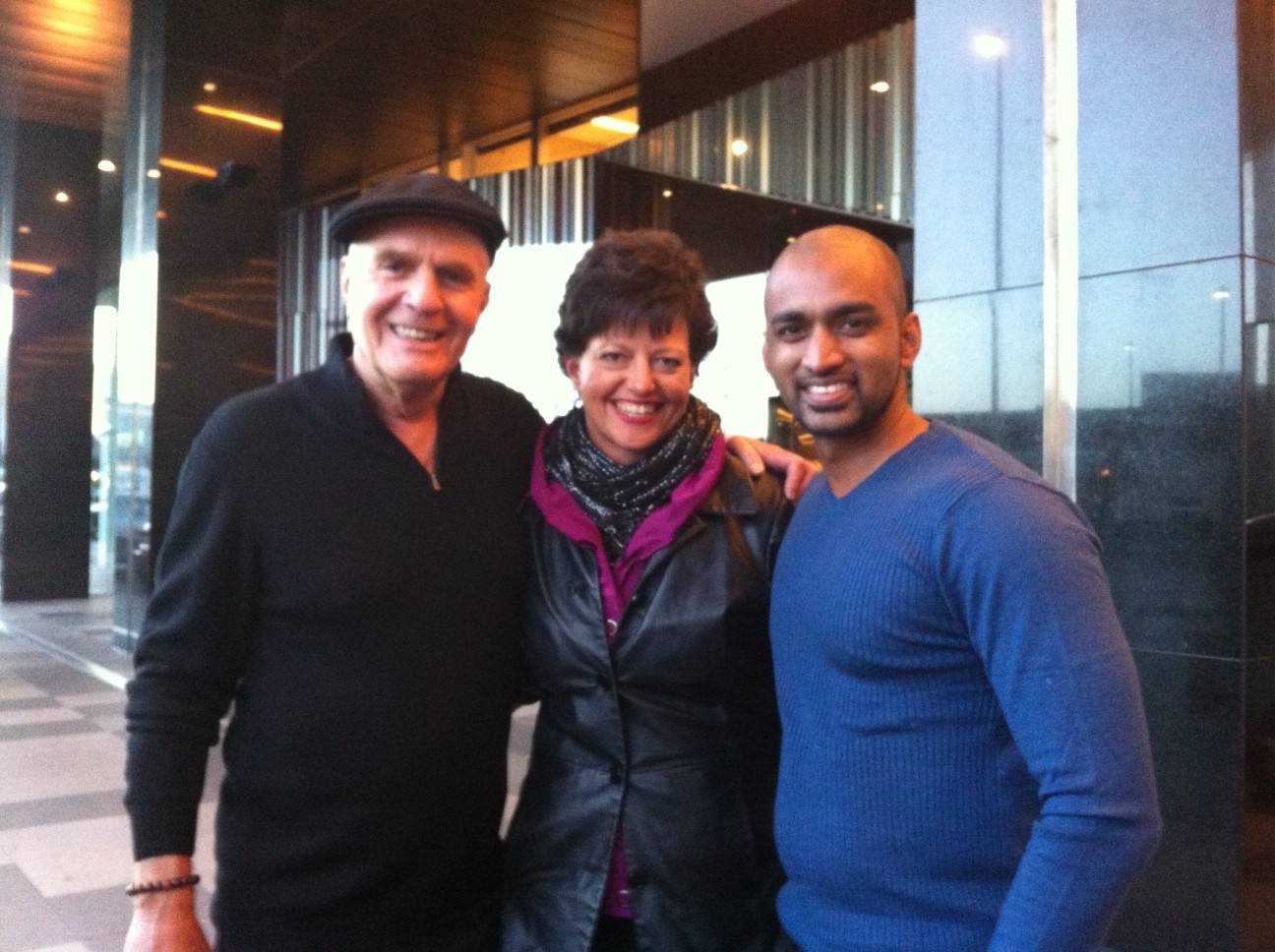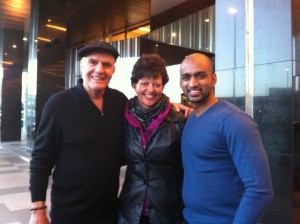In October I will be walking 100km in the Oxfam Trailwalker event in Perth. Yes I did this last year – so why am I doing it again?
Well, I honestly enjoyed training for last years walk and I actually enjoyed the walk itself! I enjoyed how healthy I felt with all the walking training, fresh air and inspiring conversations.
Not only that, but the walk itself reinforced to me the value of setting big goals and having small realistic incremental goals to strive for.
So here are my lessons!
1. Set big goals even if you think you can’t achieve them!
When I set the goal to walk 100km I didn’t know if I could do it because I’d never done it before! I had severe knee problems during training so even 3 weeks beforehand I didn’t know if I could do the 100km. Medical experts recommended that I didn’t do it because of my knees. But with training and small achievable goals in between, and lots of help from family, friends and a medical team, we did it!
2. Set little incremental steps – both in training and during the actual event.
During the event I simply focused on the next checkpoint. They were roughly 10km apart. It’s so much easier to focus on the next 10km. Try focusing on how you’re going to do the next 95km when you’re only 5km into the walk! There were honestly some times where I really couldn’t even contemplate the 100km, so I put that out my mind and simply counted my steps till the next checkpoint.
Life’s a bit like that – there are times where we can’t even visualise achieving our big goal but we can focus on small daily tasks that will get us one step closer. AS LONG AS WE ARE CLEAR ON WHAT WE WANT!
3. Make space in your diary to achieve your goal.
I cleared appointments and networking events out of my diary so that I could meet weekly with others who were doing walking training. If you’re too busy in life, you might be too busy to achieve your goals. Goals do need ‘training’ in various forms. Just like our walking training wasn’t only about physical fitness, it was mostly about the mental training. We also had to figure out what shoes worked best. Which socks worked. Now that took some time – to figure out the sock-thing! Seems such a small thing but it was really important as blisters are the number one reason why people don’t finish the Oxfam 100km event. Sometimes it’s the small things that are seemingly unimportant that can either help or hinder us achieving our goal.
4. Connect with the right people who are heading in the same direction (with similar expectations)
This is critical. It comes in two parts: for the training it’s much easier to get into a routine with others who are training and wanting to wear out their treads in achieving their goals. It can be so much fun – our training walks certainly were and continue to be!
For the team you do the event with: choose people who have similar goals and abilities to you. Unfortunately I was the slowest walker in my 2013 team and this caused much frustration for the others. I would have been frustrated too, if I’d had to walk with someone much slower than my natural walking pace. But the rules of the game are that you only walk as fast as the slowest walker. Being honest about this upfront can save unnecessary angst during the event. This year I’m walking with the team that I have done lots of walking with, so we know our paces fairly well.
It makes life much easier if you have a mentor or coach who can guide you along your journey.
5. Training is key
We all know the obvious element of training to get fitness up. Some people think they can get fitness up in other things like running, playing squash or doing other activities. For an endurance walk such as the 100km Oxfam, walking training is really important. The way our bodies move while walking is different to the way we move in other activities.
While other activities can bring fitness up, it cannot prepare us mentally for what we go through while trudging for miles and miles. Footwear is key, as is the right backpack, the right food and water, the right clothing to keep you comfortable at all times. When you do 10km walks weekly and the odd 30-50km on various weekends, you figure out what works best for your body.
The biggest challenge of the Oxfam (apart from blisters) is the mental challenge. Working with the team when everyone is tired, wondering if you’ll make it, can create tension and upset. It’s better to get these issues resolved during training rather than when you’re walking the 100km Oxfam Perth event in October!
When you know what your number one goal is, then it’s easy to know what training to do for it. If you don’t know what your goal is, it’s hard to know what training to do. This is when people get BUSY, rather than being productive and getting results. Speak to Jill about getting clear on your goals.
6. Attitude is everything!
I found it useful to set my intention for the walk from very early on. Here was my intention statement written down in the future, but in present tense. I set it for 5 days after the event because it was really important to me that I could still walk (after all my knee issues) after the event! If your goal is to cross the finish line and you don’t care about the next day, you can push yourself a bit harder and pick up the pieces later!
“I am so happy and grateful that I have finished the Oxfam 100km walk. I really enjoyed it, connected with others along the way AND it’s great to walk with ease right now!”
This intention sets the tone for your training and for your main event. I have a business and a husband and three kids to take care of, I can’t afford time on my back at that time of the year!!
My intention was to be able to walk with ease in the days immediately afterwards. I adjusted my pace so that my body was comfortable. I also ensured that I did my stretches and fed myself proper nutrition during the walk.
Attitude is a topic that I cover in my talks – how to change your attitude, how to know which attitude is the best to have. Of course, the Attitude of Gratitude is one that makes a big difference.
7. Pacing will make or break you.
In an endurance race, it’s about finishing, not about winning. Some teams raced through and others ambled. Provided your entire team feels the same about this as you do, then that pace is right for you, no matter what it is. However, we did hear stories of fit military folk who pulled out at the 70km mark because they didn’t think they could finish. They’d pushed themselves so hard that they had nothing left in the tank. They would easily have finished even if they had laid down for a nap for half the day and walked the rest of the way, but they were already beaten mentally.
During our training it became obvious to me that when I pushed my body past the 5km per hour mark for longer than 20km, my knees got really sore and in some case were injured. (Patella femoral maltracking with bursitis on both knees was the issue if you really want to know: the knee cap was being pulled outward and the knee joint was rubbing in all the wrong places underneath the patella, which became worse as I speeded up.)
By pacing myself at under 5km per hour on the flat and under 4km per hour on the rougher bits, sometimes 2.5km per hour, I knew my knees would hold up AND be able to function the following day. Ambling along would get me there. Also known as ‘slowing down to speed up!’
This was a major learning curve for me. I learnt patience and pacing. I learnt to appreciate my body and listen to what was actually going on, rather than allowing adrenalin to pull me through. Short events can be done using adrenalin, but long endurance events need to have a different strategy. It’s the same with BIG goals. They need a different strategy to those quick little goals.
8. Fill up your tank
For a short event, we have enough reserves to cope. For a 100km walk over two long days – or 34 hours of walking – our body needs sustained nutrition. There is lots written about what that nutrition is, so I won’t go into it here.
Filling up your mental tank is not spoken about quite as much. This is an area that I’m passionate about. Filling your mind with positive, inspirational stories helps you to pull through the tough spots. Filling one’s mind with negative self-defeating stories makes us want to give up.
This ties into who you need to connect with. Surrounding yourself with positive people who will encourage you on your journey makes a huge difference. While I was walking, it was really encouraging thinking of those who had sponsored our team financially and emotionally. Knowing that I had friends thinking of us and tracking our progress kept me taking one more step closer towards my goal.
9. Share your success with those you love!
Be an inspiration to your family. When we were walking towards the finish line, seeing our husbands and children waiting for us was an incredible feeling. In some small way I hope it has encouraged them to work towards goals that they are passionate about. They saw when times were getting tough, and they saw the victory at the end. It is quite a nice balanced view of life I think – to know that we can work through the tough times and will have success along the way too!
Thank you to all our sponsors, supporters and friends. You make the world of difference to us and to Oxfam and to those that Oxfam supports.
We have been really impressed with what Oxfam does and with their organisation. This event is incredibly well run – and if this is how they do other things, then I know our money is going towards a very worthwhile cause.
What are your big goals?
Written by Jill Hutchison








Create your badge